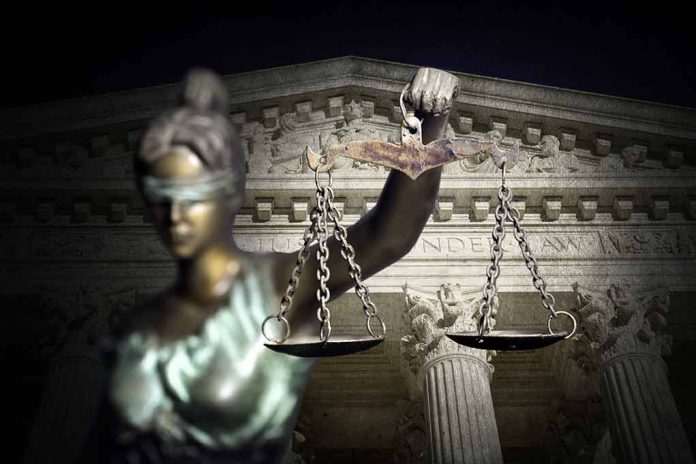
(UnitedVoice.com) – The Supreme Court is wrapping up its 2023-2024 term. The justices have issued several important decisions, including one regarding expert testimony during criminal trials. Justice Neil Gorsuch was not happy with the majority.
On June 20, the Supreme Court issued its decision in Diaz v. United States. Delilah Guadalupe Diaz appealed her conviction to the high court after a jury found her guilty of importing meth into the US from Mexico. The charge required the government to prove she was knowingly smuggling drugs. She claimed she had no idea, arguing some put drugs in her car without her knowledge.
The question before the SCOTUS was whether federal evidence rules allow prosecutors to admit testimony from an expert witness who speaks in general terms about what someone should know. For instance, an expert testified in Diaz’s case that most drug smugglers know they are transporting drugs.
The justices ruled 6-3 that the testimony was allowed under federal rules and rejected Diaz’s appeal. Justice Kentanji Brown Jackson sided with the majority, which included Justices Clarence Thomas, Samuel Alito, Amy Coney Barrett, Brett Kavanaugh, and Chief Justice John Roberts. However, Justice Neil Gorsuch split with his conservative colleagues and led the dissent against the decision. Justices Sonia Sotomayor and Elena Kagan joined the dissent.
Thomas wrote for the majority and said the testimony in Diaz’s trial was fine because the expert merely explained what “most people in a group” know, not what Diaz, herself, knew.
Gorsuch slammed the majority, saying the decision gave the government “a powerful new tool.” He went on to say that prosecutors would now be allowed to put experts on the stand “who apparently [have] the convenient ability to read minds” and testify about what people know. Gorsuch said the government should have to do more than tell the jury to convict someone based on whether she’s like “most people.”
The justice questioned where the authority is that allows “that kind of charade in federal criminal trials is anybody’s guess” but stated it wasn’t found in the federal evidentiary rules.
Copyright 2024, UnitedVoice.com






















